Pretty…

Batman #232, by Denny O’Neil, Neal Adams and Dick Giordano, is not only one of the greatest Batman stories ever, it’s one of the greatest comics ever. And not just because it introduced Ra’s al Ghul but because it’s a cracking adventure with magnificent art.
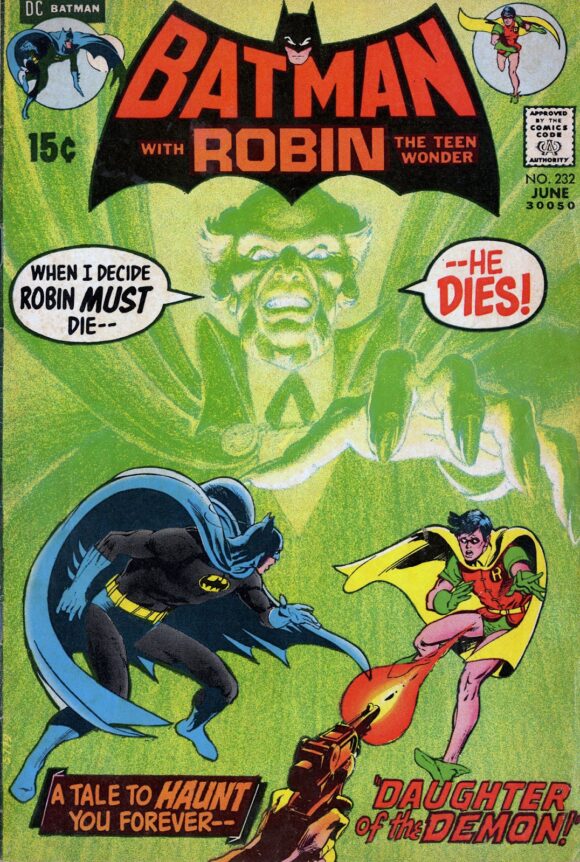
That latter aspect of the 1971 classic is why we’re here: to show off Adams’ lush color guides for three of the book’s best-known pages that the artist recently posted on Facebook.
Dig these, along with the printed versions:
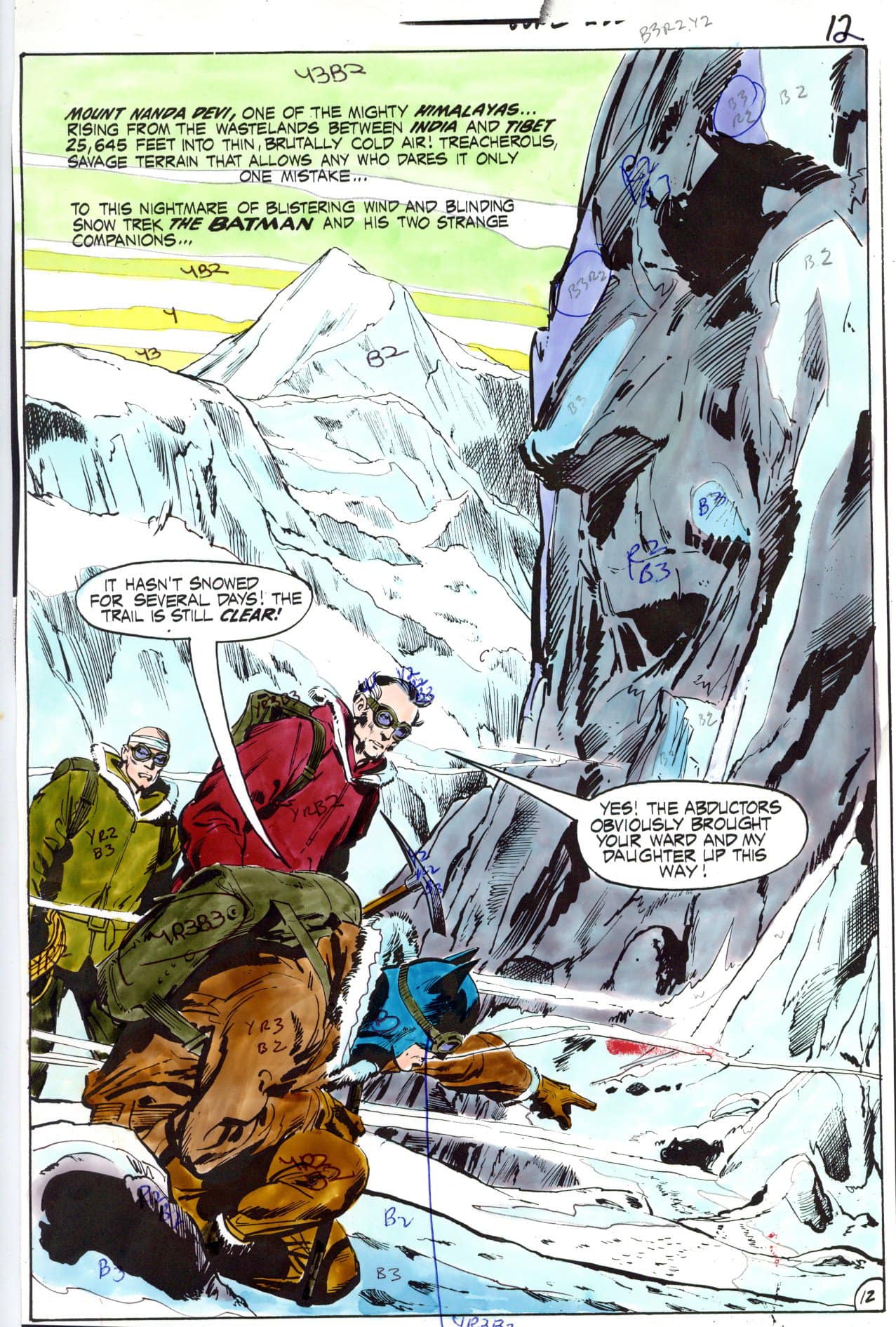
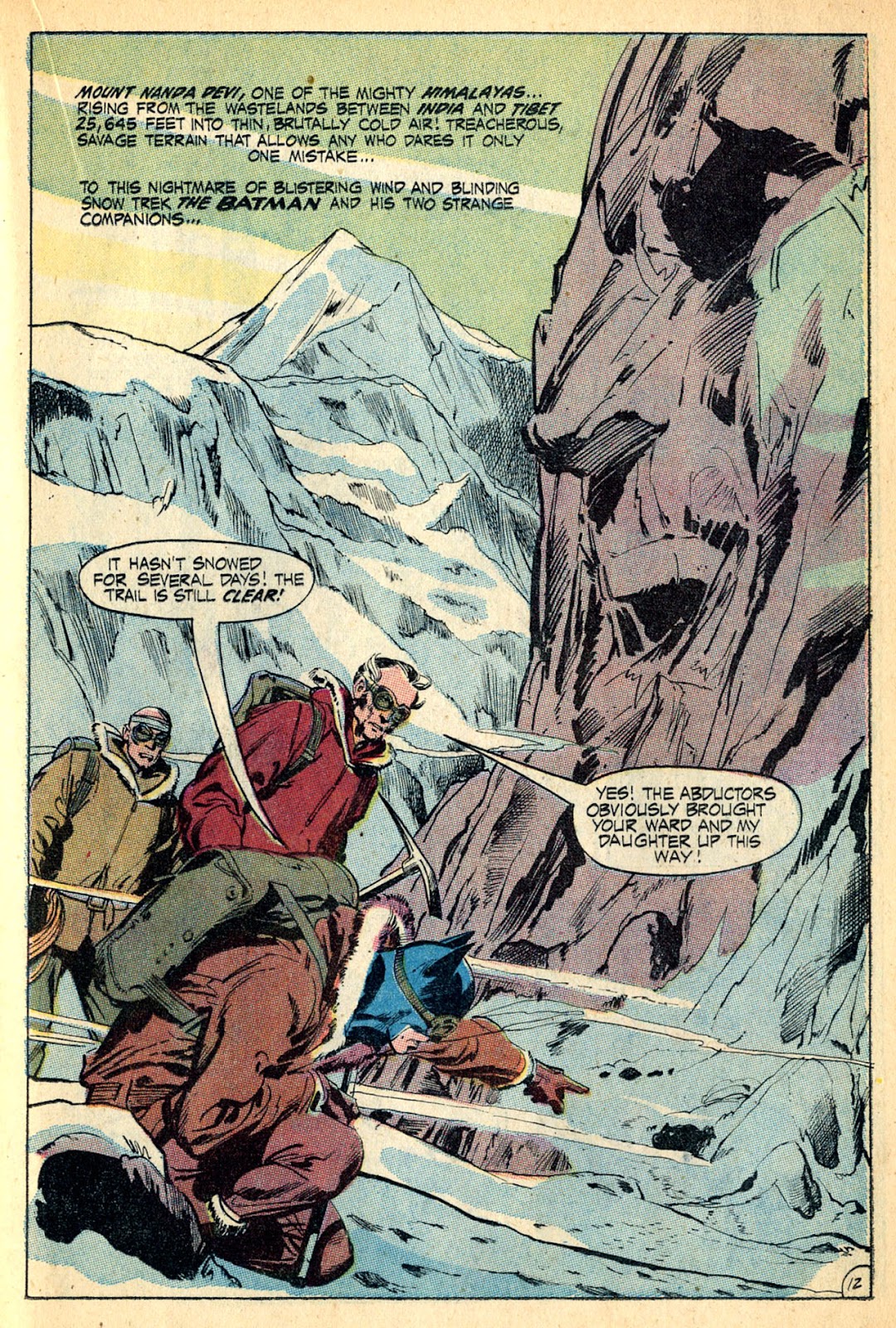
—
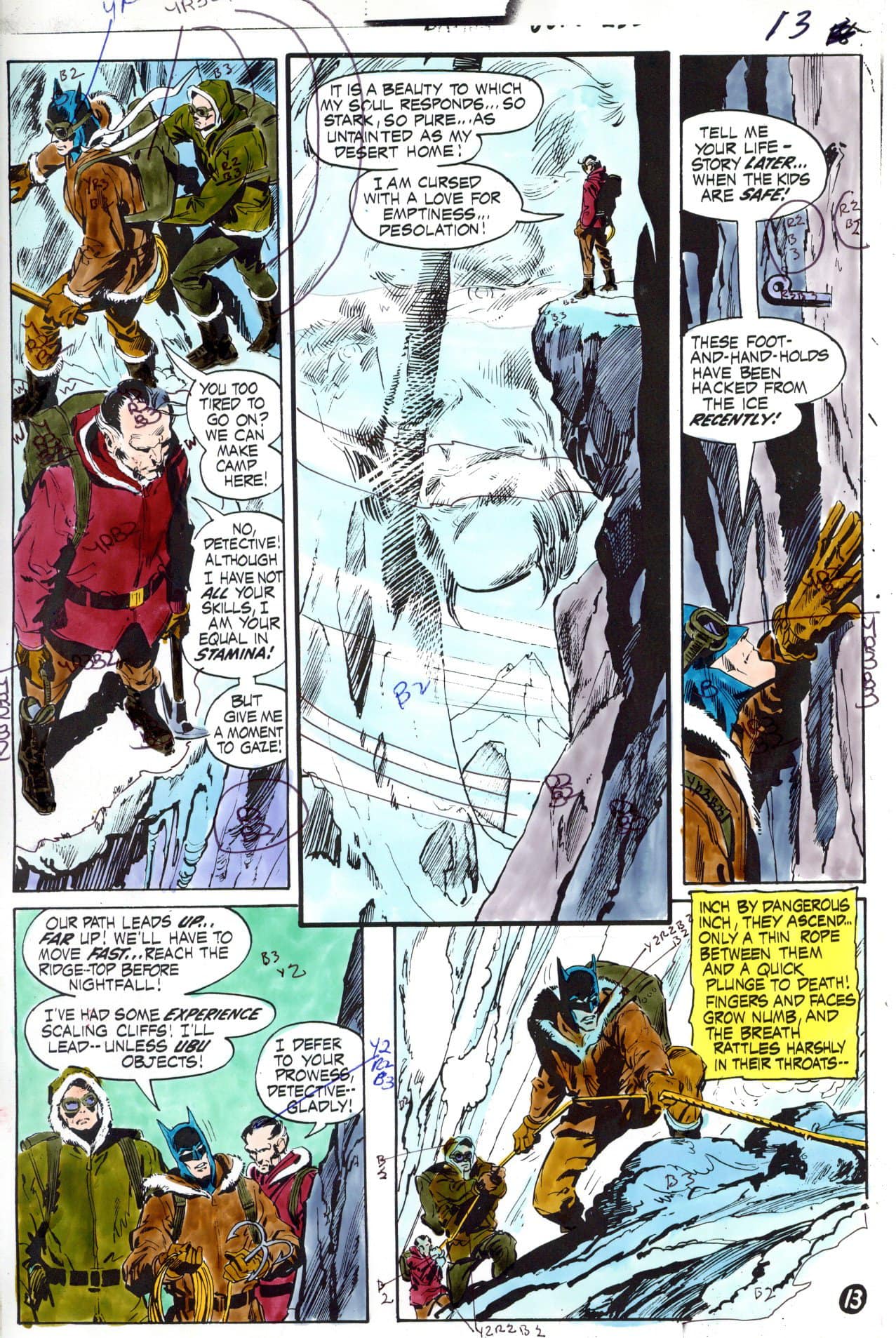
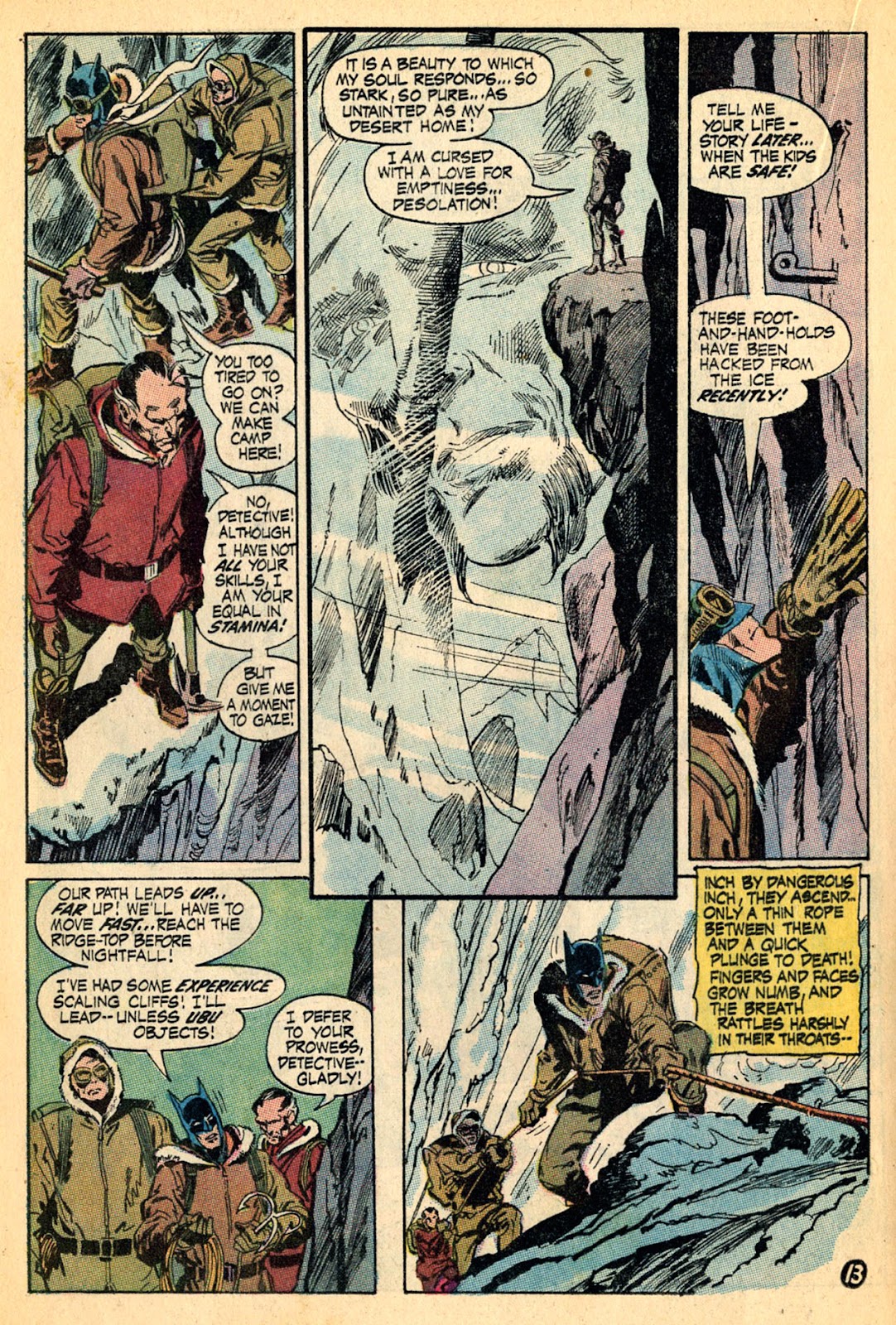
—
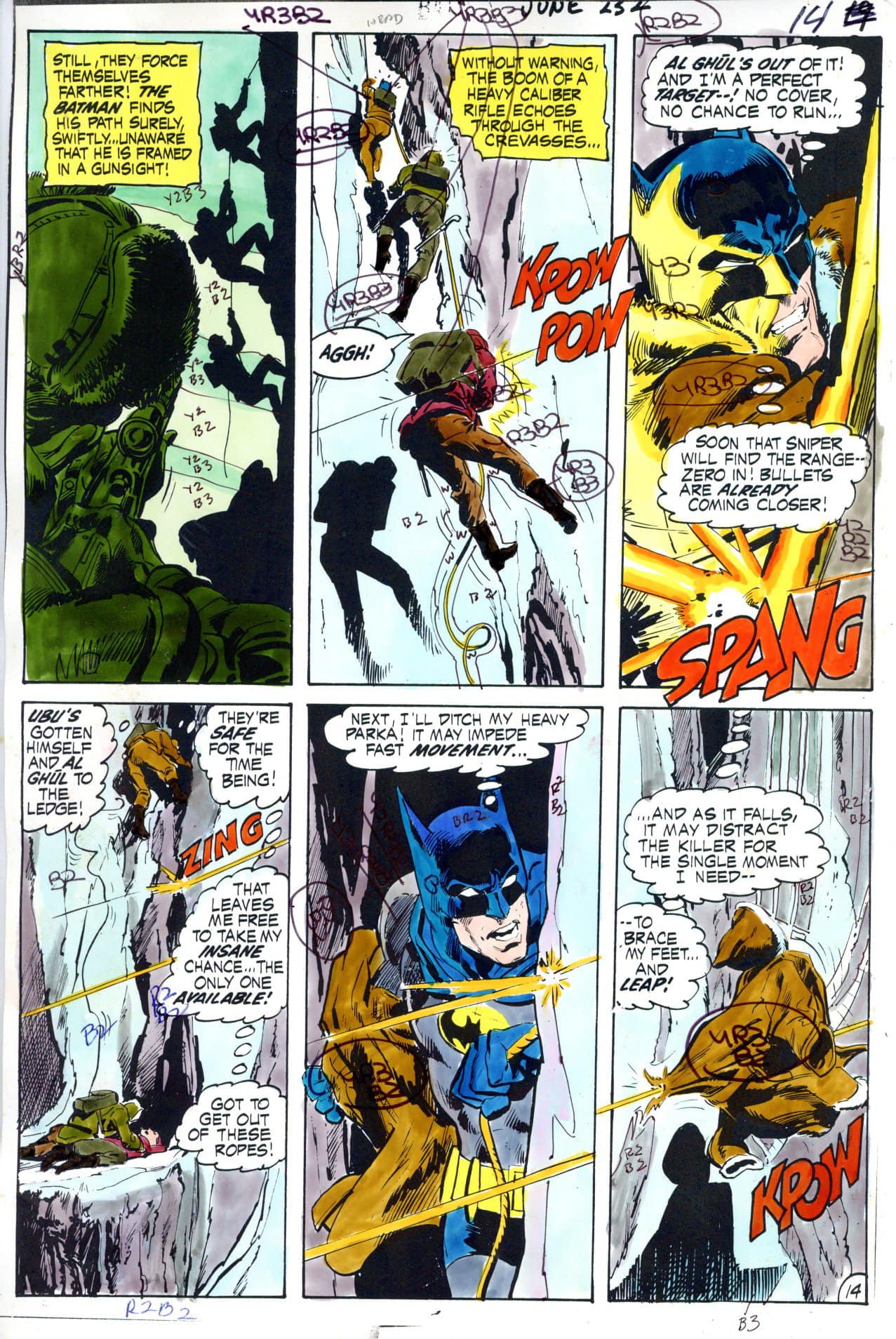
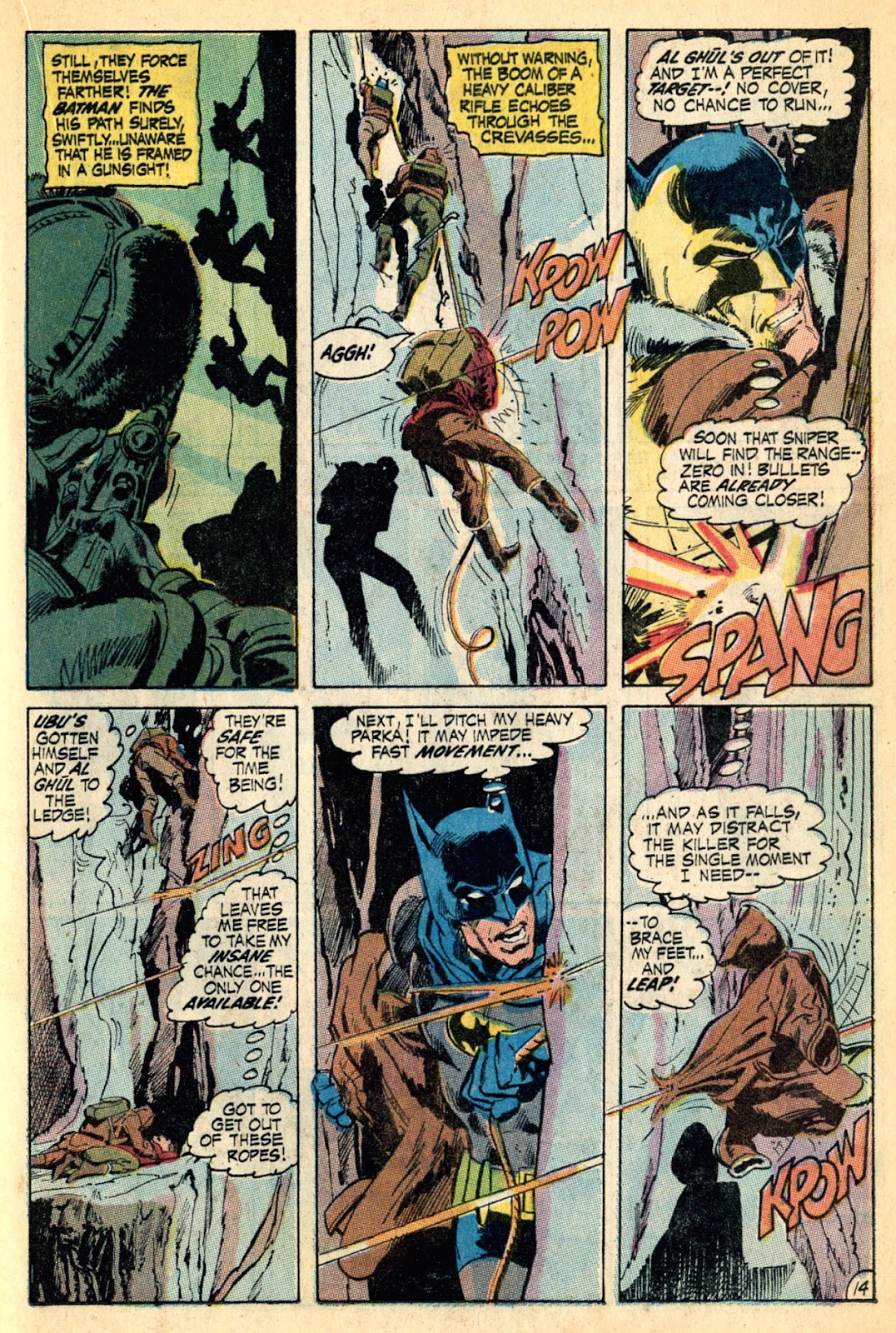
I would buy an entire book just with color guides like these. Anything that shows the nuances of such spectacular artistry should be celebrated widely.
One can hope, right?
—
MORE
— Why RA’S AL GHUL Has Endured for 50 Years, by NEAL ADAMS. Click here.
— The Brilliant Majesty of the BATMAN-RA’S AL GHUL Treasury. Click here.

March 25, 2022
Comics in the 70s used a four-color printing process that’s (conceptually if not mechanically) similar to the one that mixes cyan, magenta, yellow and black pigments in today’s inkjet and laser printers.
So am I right to understand that:
• Adams’s R, Y and B refer to magenta, yellow and cyan inks?
• The numbers after each color are shorthand for percentages: R3B2 = 30% magenta + 20% cyan?
• If a color isn’t included in a guide, 0% is implied: R3B2 = 0% yellow + 30% magenta + 20% cyan?
• If there’s no number after a color designator, then 100% is implied: YR3B2 = 100% yellow + 30% magenta + 20% cyan?
• W (white) = 0% of all colors.
March 25, 2022
R3 means 50% magenta. R2 means 20% magenta.
March 25, 2022
That’s cool information. Always wondered how it was done, especially when a colorist is listed in the credits
March 25, 2022
These are pretty outstanding color guides all around.
March 25, 2022
One follow-up, I had some of the Batman comics from this era printed in Germany. The cape and cowl were darker, and the leotard was more lavender colored, so they may have their own color interpretation in Europe. Thoughts?